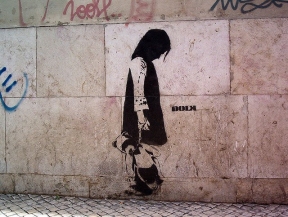
Human trafficking is the world’s fastest growing criminal enterprise and is an estimated $32 billion-a-year global industry. Up to 27 million people around the world are held in some form of slavery, but last year only 46,500 of them were identified, according to the 2013 Trafficking in Persons Report issued by the U.S. State Department.
“Identifying and rescuing child victims of sex trafficking is particularly difficult,” says practicing attorney Pamela Samuels Young, www.pamelasamuelsyoung.com, author of “Anybody’s Daughter,” a new legal thriller that sheds light on the growing problem of child sex trafficking in the United States.
Traffickers prey on the most vulnerable children in our society, such as runaways or children in foster care, Young explains. At least 100,000 children in the United States are victims of commercial sexual exploitation, according to a report of the findings of a 2012 National Colloquium on the issue. What can we do to end child sex trafficking? Young offers these solutions.
• Enact stiff penalties for traffickers and johns. For a long time, those who purchased sex did not face criminal prosecution, while those who sold it or promoted it did. While that is beginning to change, the punishment for johns is still no more than a slap on the wrist. As for the pimps, even if they are arrested, they’re often back on the street the next day while the girls remain in custody.
• Treat commercially sexually exploited children as victims, not criminals. Thanks to the growing global focus on human trafficking, law enforcement agencies and first responders are finally beginning to receive the training they need to recognize an exploited child, Young says. Los Angeles County’s STAR Court is one example of an innovative approach to this tragedy. STAR stands for Succeed Through Achievement and Resilience. The program provides under-aged girls arrested for solicitation with resources to help them become independent, productive adults.
• Help sexually exploited children transition out of “the life” by supporting organizations that provide support services. For many of the under-aged girls arrested for soliciting prostitution, it’s a revolving door, Young says. They go back to the “the life” because they have no other options. These girls need temporary and long-term housing, medical and psychological care, educational services, mentoring and job training. Consider donating your time and financial support to one of the many worthy organizations that serve sexually exploited children, such as Saving Innocence, MISSSEY (Motivating, Inspiring, Supporting and Serving Sexually Exploited Youth), GEMS (Girls Educational and Mentoring Services) and CAST (The Coalition to Abolish Slavery and Trafficking).









